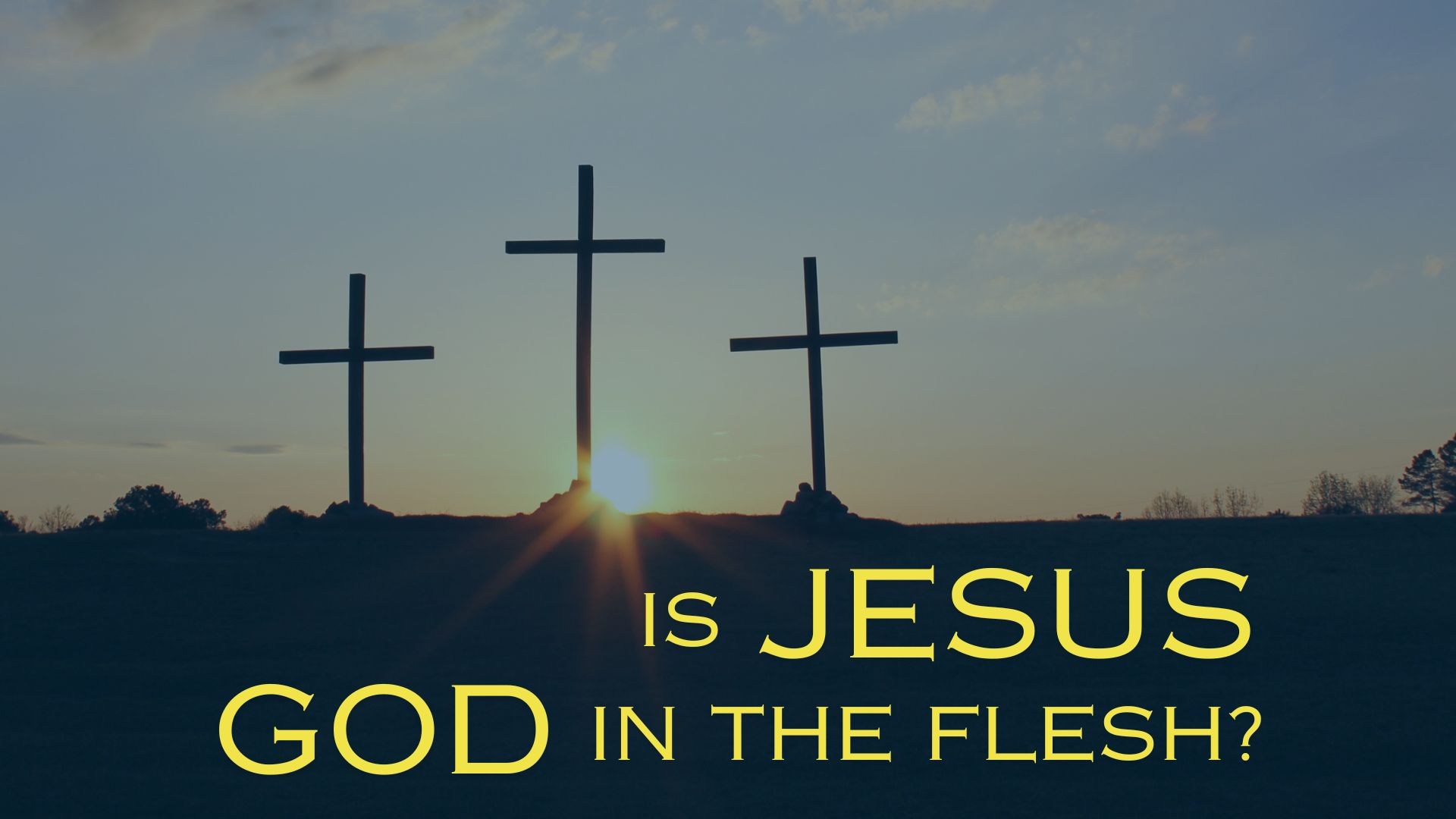It’s one of the more contentious questions in religious discussions. And one of the most important. Whole books have been written on the subject. Entire religious sects formed over people’s answer.
Is Jesus God in the flesh?
The easiest starting point would be to look at what Jesus Himself said, which we’ll do first. Then we’ll examine some of the evidence. Finally, we’ll talk about why it’s important.
Here’s the short answer: Jesus claimed to be God in the flesh, and His enemies had Him put to death for doing so.
What Jesus Said About Who He Is
While the Lord did not make this His opening statement when talking with people (though He certainly could have), He revealed it to people on many occasions. Here are a few examples.
When some asked Him to tell them if He were the Messiah, Jesus replied,
I did tell you, but you do not believe. The works I do in my Father’s name testify about me, but you do not believe because you are not my sheep. My sheep listen to my voice; I know them, and they follow me. I give them eternal life, and they shall never perish; no one will snatch them out of my hand. My Father, who has given them to me, is greater than all; no one can snatch them out of my Father’s hand. I and the Father are one. (John 10:25-30)
His opponents tried to stone him for this, because, “you, a mere man, claim to be God.” (vs. 33)
On another occasion He invoked the Name God told to Moses, when Moses asked His name.
Jesus told his adversaries,
“Your father Abraham rejoiced at the thought of seeing my day; he saw it and was glad.”
“You are not yet fifty years old,” they said to him, “and you have seen Abraham!”
“Very truly I tell you,” Jesus answered, “before Abraham was born, I am!” (John 8:56-58)
Again, they tried to put Him to death for claiming divinity.
Later, when one of His disciples asked Jesus to show them the Father, He replied,
“Don’t you know me, Philip, even after I have been among you such a long time? Anyone who has seen me has seen the Father. How can you say, ‘Show us the Father’? Don’t you believe that I am in the Father, and that the Father is in me? (John 14:9-10a)
Once more, at His mock trial before the religious leaders, Jesus was asked whether He was the Messiah. And His response was not the least bit ambiguous.
Again the high priest asked him, “Are you the Messiah, the Son of the Blessed One?”
“I am,” said Jesus. “And you will see the Son of Man sitting at the right hand of the Mighty One and coming on the clouds of heaven.”
The high priest tore his clothes. “Why do we need any more witnesses?” he asked. “You have heard the blasphemy.” (Mark 14:60b-64a)
Jesus here was quoting from Daniel 7:
“In my vision at night I looked, and there before me was one like a son of man, coming with the clouds of heaven. He approached the Ancient of Days and was led into his presence. He was given authority, glory and sovereign power; all nations and peoples of every language worshiped him. His dominion is an everlasting dominion that will not pass away, and his kingdom is one that will never be destroyed. (Daniel 7:13-14)
Was Jesus who He claimed to be?
So we have seen that Jesus, on many occasions, did claim to be God in the flesh. But was He?
A clue to the answer is in the miracles He did. Some who believed in Him asked how He could possibly heal those with diseases, make the lame walk, and raise people from the dead, if God were not with Him.
Indeed, Jesus told his disciples in the conversation quoted earlier,
Believe me when I say that I am in the Father and the Father is in me; or at least believe on the evidence of the works themselves. (John 14:11)
But there was one final proof Jesus would offer that He was who He claimed to be. He would rise from the dead.
And He made no secret that was what He was going to do.
“We are going up to Jerusalem,” he said, “and the Son of Man will be delivered over to the chief priests and the teachers of the law. They will condemn him to death and will hand him over to the Gentiles, who will mock him and spit on him, flog him and kill him. Three days later he will rise.” (Mark 10:33)
He said this on other occasions as well, including in public. But not only did He predict it, He did it.
The Bible records Jesus appearing on multiple occasions to His disciples and others after He was resurrected. So convinced were His disciples that He was who He said, and that He had risen, they went to their deaths proclaiming it.
Men will sometimes be willing to die for a strongly held belief that ultimately isn’t true (though they think it is). But no one willingly goes to their death for something they know they made up.
The evidence is strong that Jesus rose from the dead. And if He rose from the dead, He is who He claimed to be – which is God in the flesh.
Why is this important?
I hope by this point we’ve already answered this question. But, if Jesus is who He claimed to be, then what He says is true, and we have an obligation to believe Him and to submit to Him.
But even better is this. While Christian doctrine teaches that “all have sinned and fall short of the glory of God” (Romans 3:23), and there is nothing we can do to earn our salvation (Galatians 2:16), God offers us forgiveness – through Jesus. He paid the debt that we owe for our sins, taking it on Himself, and laying His life down for ours.
The only way He would be qualified to do that is if He were completely sinless. And through His life, death, and resurrection, we see that He was. Because He was who He claimed to be: God in the flesh.




